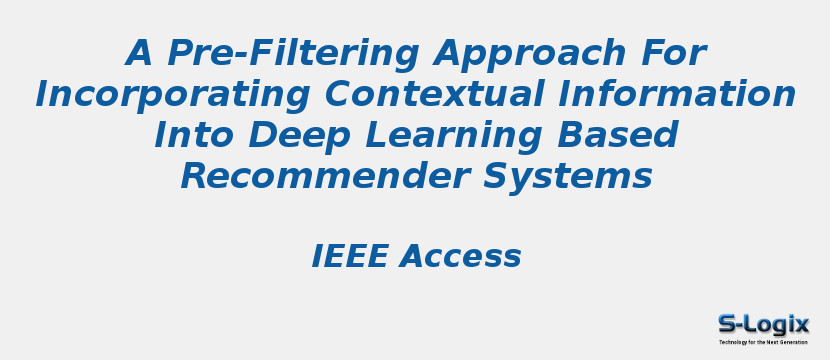Research Area: Machine Learning
Depending on the Internet as the main source of information regarding all aspects of our life is becoming a trend. People seek relevant information, suggestions, and recommendations in an overloaded online world and through social ties regarding their daily activities, including places to visit and restaurants to try new food. The wide variety of choices that are available online causes information overloading, which thereby complicates the selection process. Traditional recommender systems are mostly dependent on a conventional model that is based on user-item-rating interaction without considering contextual information. We claim that new generations of recommendation systems able to exploit context in an innovative and efficient way is important and may statistically yield more significant rating predictions. However, only few research works have focused on how to effectively and efficiently exploit context metadata in Deep Learning (DL)-based recommendations. The main reason lies, perhaps most significantly, in the fact that most current DL algorithms are not intrinsically designed to incorporate contextual tags. In this paper, we provide a significant contribution for filling this gap by designing a hybrid algorithm that retrofits and repurposes a pre-filtering contextual incorporation method and feeds the new dimension to a DL-based neural collaborative filtering method, thus preserving and recovering the benefits of both without their limitations. The paper also reports quantitative results that show that our method outperforms the baselines by statistically significant margins.
Keywords:
Author(s) Name: Isam Mashhour Al Jawarneh; Paolo Bellavista; Antonio Corradi; Luca Foschini; Rebecca Montanari; Javier Berrocal; Juan Manuel Murillo
Journal name: IEEE Access
Conferrence name:
Publisher name: IEEE
DOI: 10.1109/ACCESS.2020.2975167
Volume Information: Volume: 8
